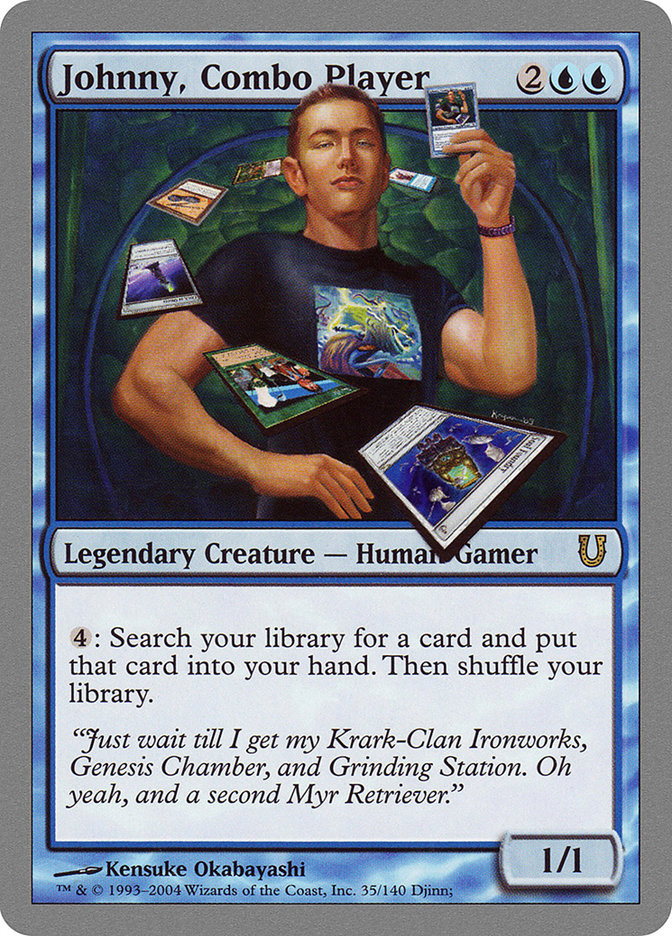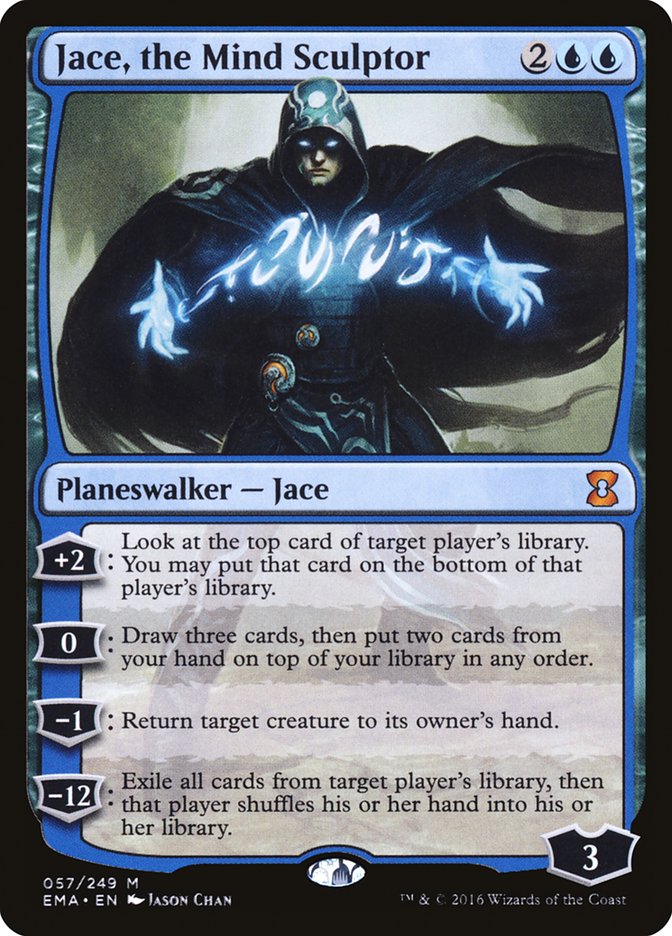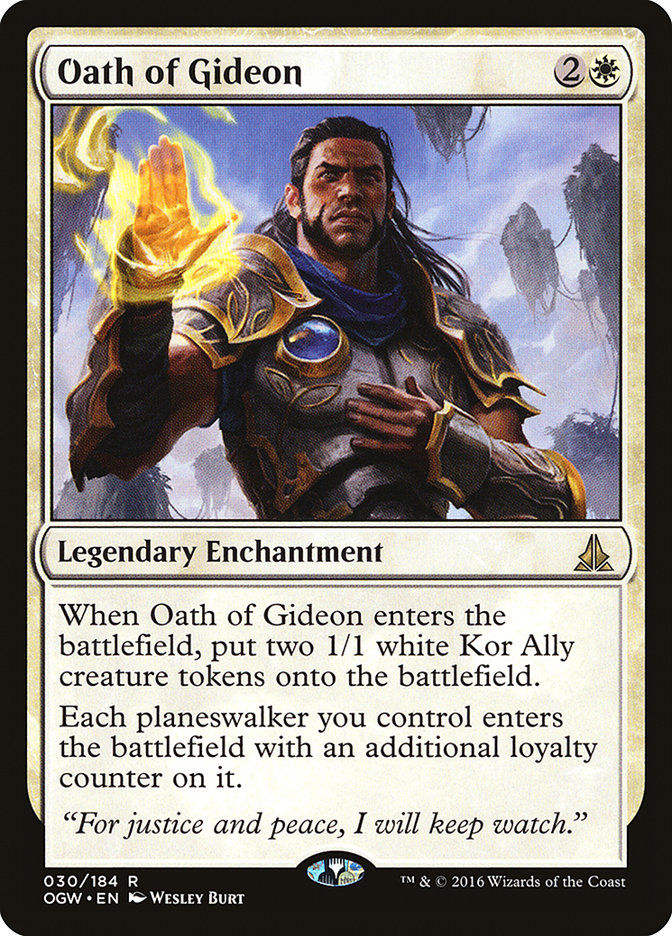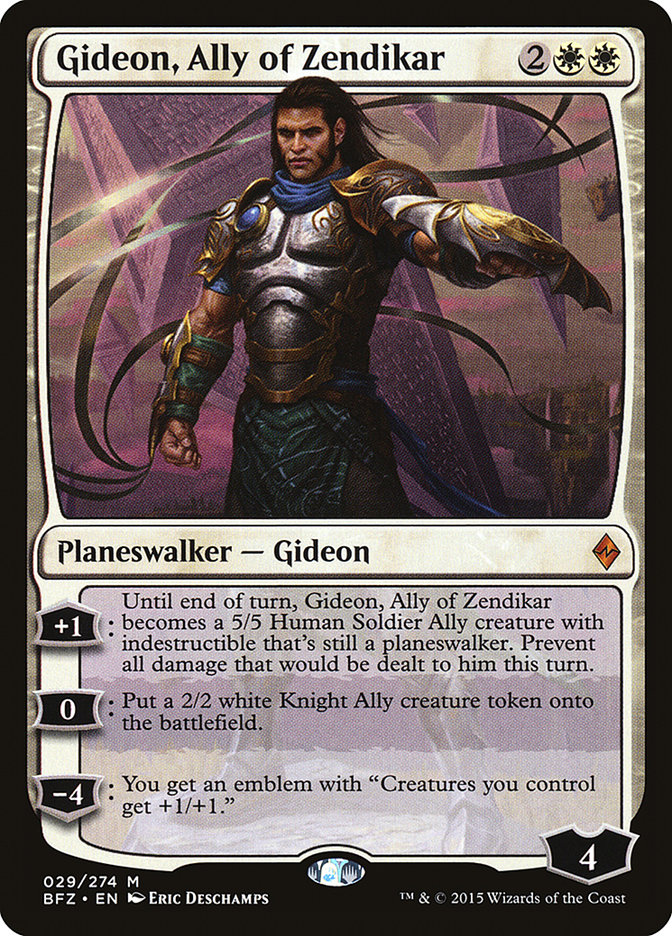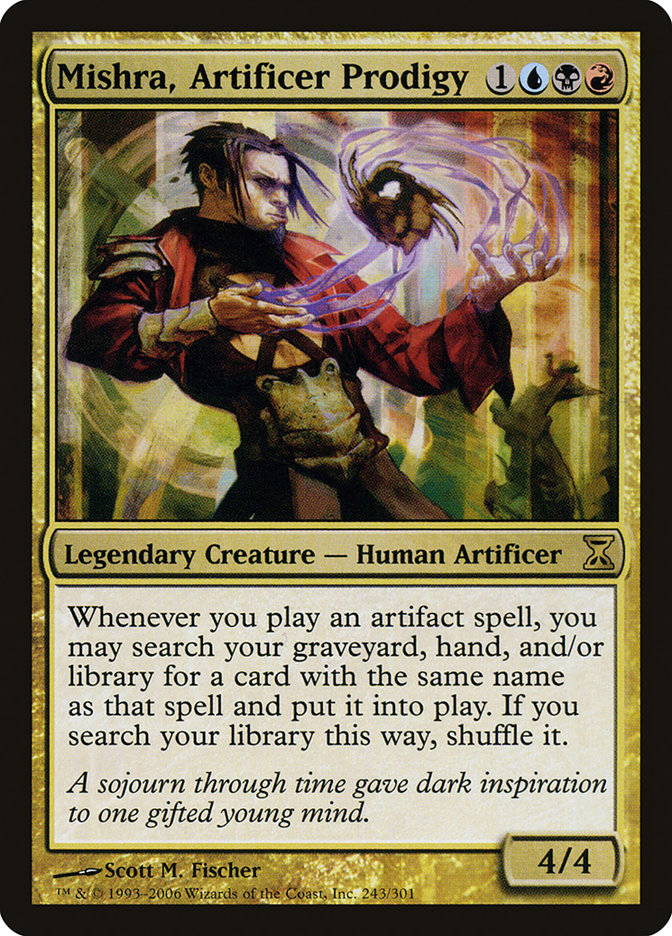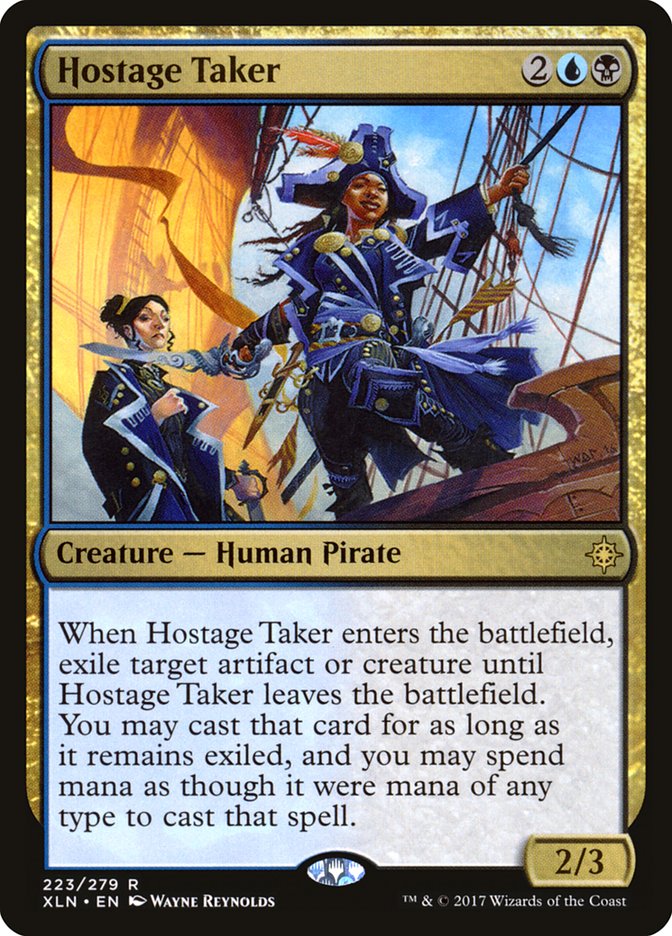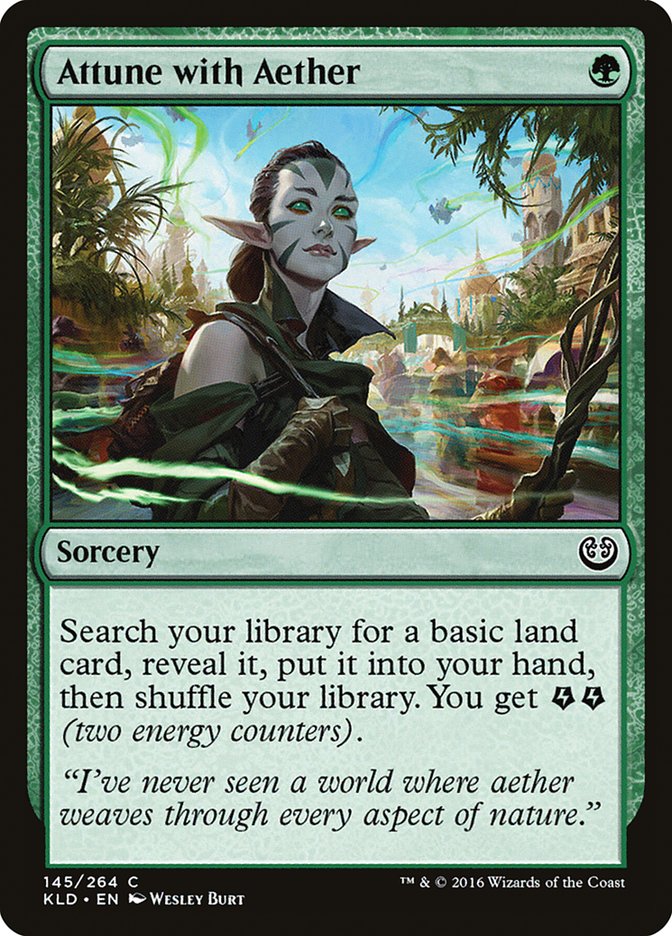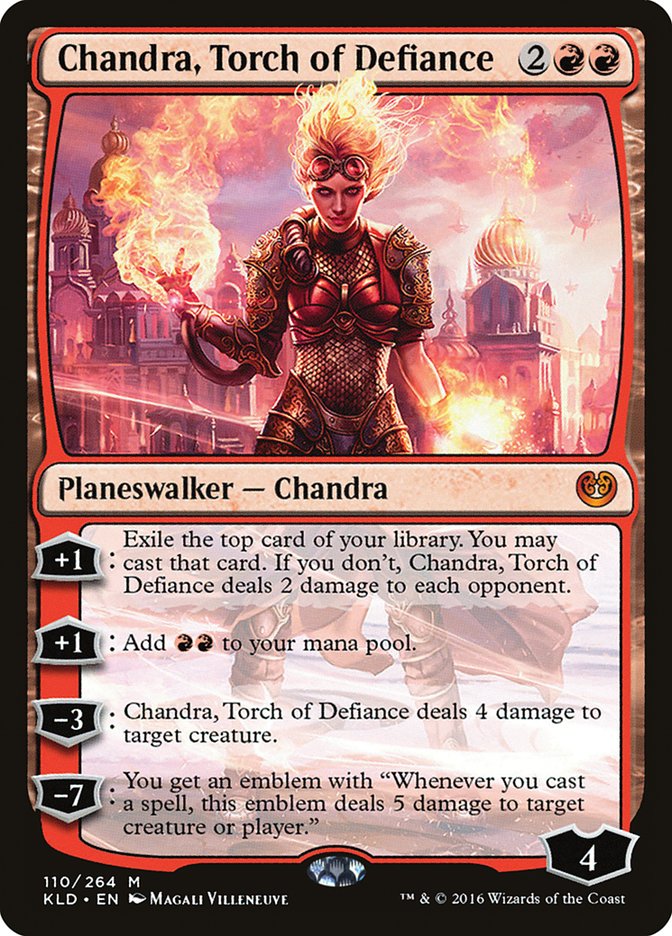Sibling rivalry is common to many growing-up experiences and adult lives. Every child who ever sat through a football game while wishing they could play a video game, who caught themselves almost wishing they’d rather be at the dentist than a dance recital, is nodding along right about now.
And if one of those siblings should be needful or gifted in a way the others are not — the childhood leukemia patient whose plight anchors the rest of the family in a hospital waiting room, the test-taking prodigy who provokes utterly unfair “why can’t you be like them” scoldings from teachers, the gymnast on a special diet at a training academy while the others eat leftovers for the second night in a row to help pay for it — it’s easy for the rest to feel neglected.
As perceived by Wizards of the Coast, there are five player profile “siblings” clamoring for attention. The “Psychographic Triplets” Timmy/Tammy, Johnny/Jenny, and Spike were identified early on, as early as Tempest, and all had their names by 2002. (Their male names, anyway. The official female versions weren’t announced until 2015.)
The “Aesthetic Twins” Vorthos and Mel (the latter of whom used to go by “Melvin”) got their start in 2005 from Matt Cavotta. While they were at first perceived as being mirror twins, direct opposites of one another, gradually Wizards of the Coast recognized they were both passionate about beauty, just in different forms; Vorthos enjoys the creative side of things, such as a beautiful illustration or clever line of flavor text, while Mel savors the craft of design, in cards, sets, or even formats.
Balancing the needs of these five siblings is difficult, and Wizards of the Coast may, for various legitimate reasons, pamper one profile or give another the cold shoulder. A set like Eternal Masters caters to the Spike psychographic, while the yearly Commander releases decidedly do not.
But from 2015 to mid-2017 in set release time (in other words, turn the chronology back by six to eighteen months for internal Wizards of the Coast events, depending on what those events are), Wizards of the Coast went out of its way to indulge — I would say “spoil” — Vorthos. As Ethan Fleischer wrote in his article “A First Time for Everything” at the end of 2015:
“Magic‘s newest planeswalker team-up is something new. This isn’t a single-serving friendship, but a lasting commitment to protect the people of the Multiverse from threats that no one else can handle. This team will endure beyond Battle for Zendikar block and into the future of Magic‘s storyline.
“Oath of the Gatewatch is a new kind of Magic set, representing an unprecedented fusion of storyline and gameplay. I’ve been very excited to see it progress from my initial design to its final form as a Magic set. I hope that the ideas that formed the basis of that design will bear fruit in the form of novel and thrilling gameplay for you and your friends.”
The trouble was, as Vorthos got spoiled, the other profiles were neglected by comparison, and Spike suffered the most, as Mark Rosewater indirectly pointed out in his June 2017 article “Metamorphosis 2.0.”
The Deal with the Film Deal
As I’ve written before (as recently as last week, in fact), in January 2014, Wizards of the Coast announced a deal with Twentieth Century Fox to make a film franchise out of Magic: The Gathering. In other trading card game and collectible card games that have media tie-ins, there’s generally a concerted effort to make notable characters (and, on a meta level, notable cards) powerful, or at least not terrible. How disappointed would Pokemon-watching kiddies have been if Pikachu were unplayable dreck? How about Yu-Gi-Oh! fans and Blue-Eyes White Dragon?
And so Wizards of the Coast made a commitment regarding the Gatewatch: it would have all members represented in Standard at all times.
As Mark Rosewater later noted in “Metamorphosis 2.0,” “This proved to be a big mistake, one that got magnified when we reverted to a Two-Year Standard.” Not only did the Gatewatch members’ planeswalker cards seem unusually powerful, not one of them got banned during an annus horribilis for Standard in which five cards were given the boot.
One could make an argument — I do not know if it would be correct, but it would be plausible — that in the triple banning of January 2017, Reflector Mage died for Gideon, Ally of Zendikar’s Standard sins.
Seriously, how did Gideon, Ally of Zendikar, also a four-of in the same Mardu Vehicles and W/U Flash decks that got Smuggler’s Copter banned, never grace the Banned List?*
* Psst, Wizards: You can update the Banned List and take Reflector Mage and Emrakul, the Promised End off. It’s okay. They can’t hurt Standard anymore.
Looking back, I find this line from the January banning announcement darkly amusing:
“Created to be scarily powerful, Emrakul, the Promised End delivered on that promise too well. Emrakul faced too little resistance and ended games too easily. She was the world-ending, all-powerful monster she was in the story, which was too much for Standard.”
Wizards of the Coast cheerfully admitted to juicing Emrakul, the Promised End for story promotion purposes, and not just there. Mark Rosewater put his own spin on the same topic in June:
“We also made the conscious decision to try to push more story-related cards to be tournament-viable. This resulted in things that were flavorful but didn’t necessarily lead to fun tournament environments. (Emrakul, the Promised End from Eldritch Moon is a good example.)”
By pushing power within sets Vorthos’s way, Wizards of the Coast effectively told Spike to share Vorthos’s interests.
That’s no way to treat siblings, and it didn’t just happen in one set, but over the course of an entire two-year Standard.
Even though I as a Vorthos didn’t ask for all the Spikes out there to get treated that way, I still feel weirdly responsible. You didn’t deserve it. It’s not your fault.
And as for the film franchise that got everything twisted, it’s October 2017 and…
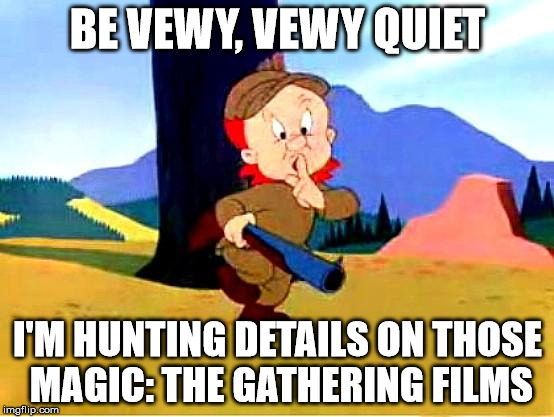
Sibling Un-Rivalry
It’s entirely possible for tournament-playing Spikes and flavor-loving Vorthoses to enjoy the same cards. From Ixalan, Hostage Taker is a tremendously flavorful card that also sees Standard play. Both sides, if they’re even really “sides,” win.
Unfortunately, among the Psychographic Triplets, Spike has a history of neglect. Spike was the last to be named (getting called just “the tournament player” long after the original Timmy and Johnny name-identities were locked in) and suffers from a misconception that the profile doesn’t have to be catered to, that any set will naturally have “best cards” and that those will be Spike’s portion.
But that’s like saying every card is for Vorthos because every card has art on it. It’s a total cop-out. Tournament-playing Spikes don’t need powerful cards; they need powerful cards that are fun to play with. When the Standard metagame is miserable for the general Spike population, Standard tournament attendance goes down; when Standard tournament attendance goes down, you get a Season One schedule for the 2018 SCG Tour that looks like this, stuffed to the gills with Modern Opens.
Let’s face it: until Kaladesh block rotates, we’re still stuck with the energy mechanic and Chandra, Torch of Defiance in Standard. We haven’t seen the last of the Vorthospike Era yet.
What we have seen, fortunately, is a commitment on the part of Wizards of the Coast to do better. Their words already have begun translating to deeds; Ixalan, while still featuring Story Spotlight cards, certainly is less pushy about screaming “Vorthos! Vorthos! Vorthos!”, particularly on the set’s power cards. Already I’m looking forward to the Autumn 2018 release, when we can consign the last of the Vorthospike Era sets to Standard Past.
Until then, I’d like to find as much common ground between Spikes and Vorthoses as possible. Affinity is a powerful Modern deck — it’s my Modern deck of choice, in fact — but I also enjoy the flavor of a deck made out of a carefully curated selection of artifacts from across the Multiverse. And I’ve yet to find a player completely indifferent to their choice of basic lands, except when time presses.
Explaining the past doesn’t change it for all the Spikes out there. The future fun factor of Standard tournament play isn’t guaranteed to be great. But I can write this much for the present.
Dear Spike,
I’m sorry.
Love,
Vorthos



